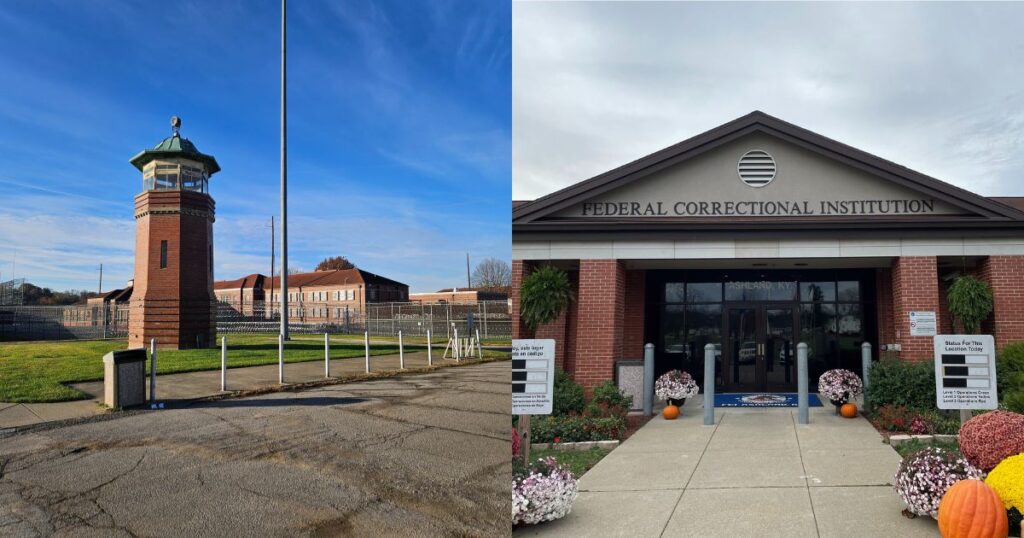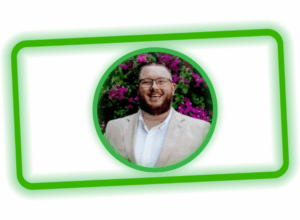After 27 years of incarceration for a nonviolent cannabis offense, Edwin Rubis’ story is a haunting reminder of the injustices perpetuated by the war on drugs. Despite the growing acceptance and legalization of cannabis across the United States, Edwin remains behind bars, serving a 40-year sentence for conspiracy to distribute marijuana—a sentence that has cost him nearly three decades of his life, separated him from his family, and stripped away countless opportunities.
At Beard Bros Pharms, we’ve long advocated for justice and reform, but Edwin Rubis’ case resonates deeply with us. Recently, we had the honor of visiting Edwin—his first in-person visit in seven years. The experience was both heart-wrenching and inspiring, as we witnessed firsthand his resilience, faith, and determination to make a difference despite his circumstances. After our visit, we reached out to Edwin to dive deeper into his story. Through a candid set of questions, he shared his journey, the devastating impact of his incarceration, and his enduring hope for a better future.
This Q&A session sheds light on Edwin’s lived experience and the harsh realities of a system that continues to punish individuals for offenses that are now legal in many states. His words are not just a call for justice—they are a testament to the human spirit’s ability to endure and transform. Read on to learn about Edwin’s past, his struggles, and his dreams for a life beyond the prison walls.
Q: How long have you been in prison? And how much time you have left to serve?
Edwin Rubis: I am on the 27th year of my imprisonment. My outdate is 2031. I’ve got about six more years to go. I came to prison when I was 29 years old, I’ll be 62 when I get out. Crazy huh?
Q: When were you arrested?
Edwin Rubis: The morning of May 27, 1998. A normal day. I was going to work. Late. But I was going.
Q: Where were you arrested, and who arrested you?
Edwin: I was arrested in Houston, Texas, by the D.E.A. and the Texas Gulf Coast Task Force. They were heavily armed. I thought they were coming to arrest a serial killer or a terrorist. They ransacked the apartment. Strip searched my wife and my three year old son. They did not find any drugs, money, or guns.
Q: What were the charges?
Edwin Rubis: I was indicted for conspiracy to distribute marijuana.
Q: Were you guilty of those charges?
Edwin Rubis: I was guilty of transporting and selling weed. But not in the amount mentioned in the federal indictment.
Q: How did you become involved in the conspiracy?
Edwin Rubis: I didn’t. You have to understand what conspiracy is. Federal law is not like state law. Federal courts can use hearsay testimony to establish guilt due to a conspiracy charge. Two or three people can say: “Mike told me Edwin said it was okay to sell weed”, and it’s considered credible testimony to find a defendant guilty of conspiracy. Conspiracy itself is a uniquely American Federal charge.
Q: Is that what happened to you?
Edwin Rubis: Of course. Five of my co-defendants [and others], including the leader of the conspiracy, testified against me in open court, saying “so and so said Edwin was involved and present during cannabis purchases and sales”.
Q: Were there any victims in the case?
Edwin Rubis: No. The only victim, if we are going to concede that there is indeed one, was myself and my family.
Q: Why 40 years? Why such a harsh punishment?
Edwin Rubis: Simple. 97% of federal charges are resolved through a guilty plea and some form of cooperation [snitching] to further investigations on other people involved in criminal activity. The other 3% go to trial. I exercised my constitutional right under the Sixth Amendment (a trial by a jury of my peers). I was heavily penalized for taking the case to trial, resulting in an enhancement by the government and the court. The system is designed this way. The prosecutors want federal defendants to plead guilty and snitch on others. They frown on people going to trial.
Q: Why didn’t you plead guilty then?
Edwin Rubis: I couldn’t. I wasn’t going to put my family in danger for snitching. Besides, my court-appointed attorney said I could only plead guilty by telling on others in the drug trade.
Q: What about your family, how have they dealt with your incarceration?
Edwin Rubis: They haven’t. I don’t think anyone can deal with a family member taken away for 40 years. It is traumatic all the way around. I lost my wife. I’ve never met my oldest son in person. My youngest son, Austin, suffers from a mental illness. My mother and father are in their eighties now, and have serious medical issues. I can’t be there for any of them. The most difficult part is when your family needs you and you’re locked up in a cage, year after year.
Q: Can you seek clemency from the president or other form of legal actions to reduce your sentence?
Edwin Rubis: Been there. Done that. I’ve had numerous legal motions and appeals denied. I’ve applied for clemency from the last three Presidents. I have always received the same response, “We cannot grant you a reprieve at this time.”
Q: Do you have a clemency petition before President Biden?
Edwin Rubis: Yes. It’s been pending for four years, and he’s about to leave office. I might be left behind, by yet another President. It’s happened in the past (Bush, Obama, and Trump).
Q: How could anyone help you at this time?
Edwin Rubis: The only thing left to do, is to continue to help me raise funds for a new, diversified legal campaign. I need an attorney who specializes in post-conviction law. We need nationwide ads designed to create exposure with my case. I’m also in need of a private investigator to interview members of the jury who served during my trial. The jury at the time had instructions to find me guilty of a “detectable” amount of marijuana, which could imply as little as a single joint. They were completely unaware the judge would later sentence me to 40 years. If they would have known, I believe they would’ve acquitted me.
Q: Does your family have something set up where people can help with funds?
Edwin Rubis: Yes. This is the link to my family’s fundraiser: tinyurl.com/FreeEdwinRubis
Many people have been contributing already. I am grateful for this.
Q: Are there any organizations that are helping with your situation?
Edwin Rubis: Yes. FreedomGrow, the WeldonAngelos Project, Mission Green, LPP, 40-tons, BeardBrothers, amongst many others. Also, there are numerous individuals who tirelessly advocate for my situation [too many to name here]. They all say the same thing. My case needs nationwide exposure, and for that to happen we need FUNDING.
Q: How have you spent your time in prison? What do you do on a daily basis?
Edwin Rubis: When I first came to prison, I was devastated. I was depressed and on the verge of attempting suicide. Faith is what eventually helped me to overcome depression and to help me cope with the separation from my family. It enabled me to seek rehabilitation from self-destructive behavior(s). Over the years I’ve completed over 30 rehabilitation program(s). I have earned three college degrees, and published a book to help others cope with their own life issues and mishaps.
Everyday I look to better myself mentally, and physically. I exercise. I write. I read. I study. I pray. Through all of this, I try to lift up others in the process.
Q: What would make your life better in prison?
Edwin Rubis: That’s a good question. I don’t think anything would make my prison time better. Maybe if I had access to better food and educational tools, that would, at least, make it somewhat more bearable.
Q: What are your dreams and goals for when you get out?
Edwin Rubis: For 27 years I’ve been preparing myself and will continue to do so. I want to be a better version of myself than when I first came into the system. I would like to author self-help books, and teach others what I’ve learned. I want to establish a non-profit organization to promote empathy in the world – despite race, religion, creed, culture, and so on.
Q: Do you have some final words?
Edwin Rubis: I do. I hope I am interviewed more in the future. I have so much more to say about the war on drugs, jury nullification, my trial, the 13th Amendment, politics, and legalization of cannabis.
Edwin Rubis’ story is a sobering reminder of the deep injustices within the U.S. legal system, especially when it comes to the war on drugs. His 40-year sentence for a nonviolent cannabis offense starkly contrasts with today’s legal landscape, where cannabis is now a multi-billion-dollar industry in numerous states. Through his responses, Edwin reveals the harsh realities of conspiracy charges, the trauma inflicted on his family, and the systemic penalties imposed on those who choose to exercise their constitutional right to a trial. Despite these hardships, his resilience shines through as he continues to seek justice, advocate for reform, and prepare himself for a brighter future outside prison walls.
This Q&A serves as both a call to action and a plea for support. Edwin’s fight for freedom hinges on raising awareness, funding a robust legal campaign, and securing clemency before time runs out. It’s a chance for all of us—advocates, organizations, and individuals—to rally behind a cause that represents the larger fight for justice in the cannabis industry. Edwin’s unwavering hope and commitment to personal growth remind us that change is possible, but only if we remain united in demanding it. By amplifying his voice, we can help turn the tide toward justice for Edwin and countless others like him.
















